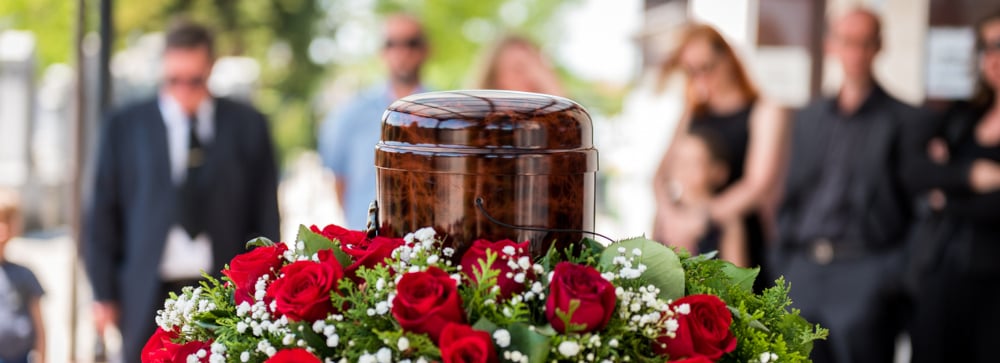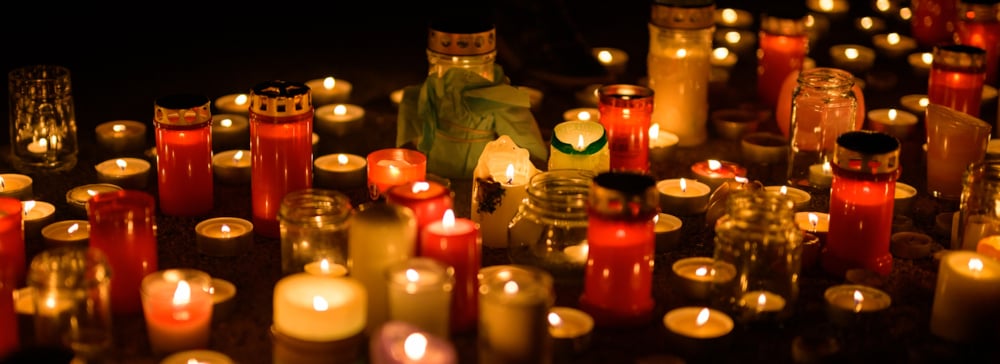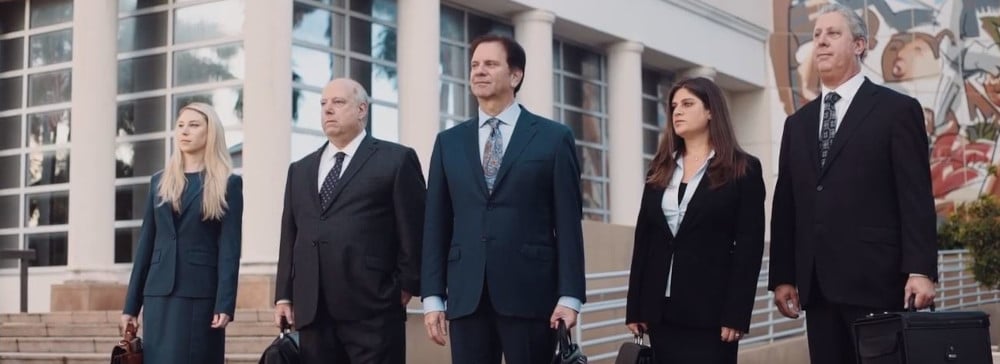Table of Contents
No amount of money will bring your loved one back. However, a wrongful death settlement can ease some of the financial burden involved in the tragic loss of a family member when another party’s negligence caused their death.
How does a wrongful death settlement get divided in Florida? That depends on the surviving relatives’ relationship to the decedent.

In Florida, the personal representative of the decedent’s estate files a wrongful death lawsuit. If the decedent had a will, it should name a personal representative, also known as the executor. If the decedent died without a will, or intestate, the court may appoint a personal representative based on their kinship status with the decedent.
The Florida statute of limitations for filing a wrongful death lawsuit is two years from the date of death, not the date of the injury resulting in the person’s demise.
As per Florida statute 768.21, the wrongful death lawsuit must identify all potential beneficiaries of the wrongful death recovery, including the decedent’s estate. The relationship of each potential beneficiary to the decedent is included.
The personal representative must hire an attorney to represent the estate. The attorney’s duty is to the estate, not the personal representative. Wrongful death lawyers must ensure that each beneficiary has the right to demonstrate how they were affected by the loss of the decedent. It is the attorney’s legal duty to maximize each beneficiary’s claim.
The statute notes that “all awards for the decedent’s estate are subject to the claims of creditors who have complied with the requirements of probate law concerning claims.” That means those to whom the deceased owed money at the time of death are entitled to payment as long as they followed the proper probate procedures.
Damages available in a wrongful death settlement include:
Keep in mind that under Florida law, there are no damages awarded for the decedent’s life. In many states, family members may testify about the plans the decedent had prior to their death. Had their lives not been cut short by this tragedy, they may have gone to college or graduate school, started a business in their field, and dozens of other possibilities. In Florida, that sort of testimony does not take place.
With the exceptions of nursing home abuse and neglect, there are no damages available for the decedent’s pain and suffering up until the time of death. For instance, if your family member was severely injured in a car accident and succumbed a few days later, there is no consideration for the pain and suffering they endured before their demise when it comes to wrongful death damages.
In a wrongful death lawsuit, survivors may receive compensation based on the support and services they no longer receive from the decedent. Support refers not only to money but also to contributions, emotional support, and, for children, instructional support.
Services refer to tasks formerly performed by the decedent that will now be a necessary expense for the survivors. For instance, if a stay-at-home mother with young children is the accident victim, the survivors must now pay childcare expenses for the services the mother performed.
As to the loss of prospective net accumulations of the estate, that refers to the part of the decedent’s expected net business or salary income, including pension benefits and bonuses, that they would probably have retained as savings. Had they lived their normal life expectancy, this amount would have been left as part of their estate.
The working status at the time of death plays a huge role in determining the loss of prospective net accumulations of the estate.
All of the compensation for loss of support and services is determined on a case-by-case basis.
Beneficiaries in a Florida wrongful death case include:
If the decedent was married or had children, parents cannot recover damages. Parents can recover damages for deceased minor children and for adult children who die without a spouse or children. If the decedent left behind an unmarried partner, that person cannot recover damages.
Adult children over age 25 are beneficiaries if their deceased parent did not leave a spouse. They may receive distributions for mental pain and suffering and loss of parental companionship.
Legally adopted children are entitled to receive wrongful death distributions in Florida. If the decedent raised a stepchild but there was no formal adoption, that stepchild is not able to recover damages for mental pain and suffering and loss of parental guidance and support.

In the case of children born out of wedlock, all such children are considered survivors of their mothers. If the father is the decedent, they are considered survivors only if he recognized his responsibility for supporting the child.
If the surviving spouse remarries before the wrongful death lawsuit is settled, that remarriage is admissible in court. The remarriage can be used against the surviving spouse in a wrongful death case.
Other blood relatives, no matter how close they were to the decedent, cannot recover damages. The only exception is a relative financially dependent on the late individual. In Florida, siblings, nieces and nephews, cousins, grandparents, and other kin are not able to recover mental pain and suffering losses from a wrongful death settlement. That is true even if they are the decedent’s closest surviving relations.
If a beneficiary, especially a spouse with no children, dies before the wrongful death lawsuit is settled, the lawsuit may just end. The beneficiaries of that beneficiary cannot take over the claim. As an example, if the decedent’s spouse dies prior to settlement and their beneficiary is a sibling, that party cannot pursue a wrongful death claim based on the loss of an in-law.
Family members might dispute the way the wrongful death settlement is distributed. If that is the case, the matter can go to mediation or arbitration. If a minor child is involved, the court must approve the settlement.
The bottom line in all such disputes is that the court decides how the settlement is distributed.

If you lost a loved one due to another party’s negligence or recklessness, contact an experienced South Florida wrongful death attorney at Kogan & DiSalvo. Schedule a free consultation to discuss your claim. We can calculate the value of your deceased family member’s non-economic losses. Such calculations are complicated and require thorough investigation.
While most wrongful death cases are settled, we will take the case to trial if necessary.
If you are injured and unable to come to us,
our attorney will come to you - there is no charge for us to do so.